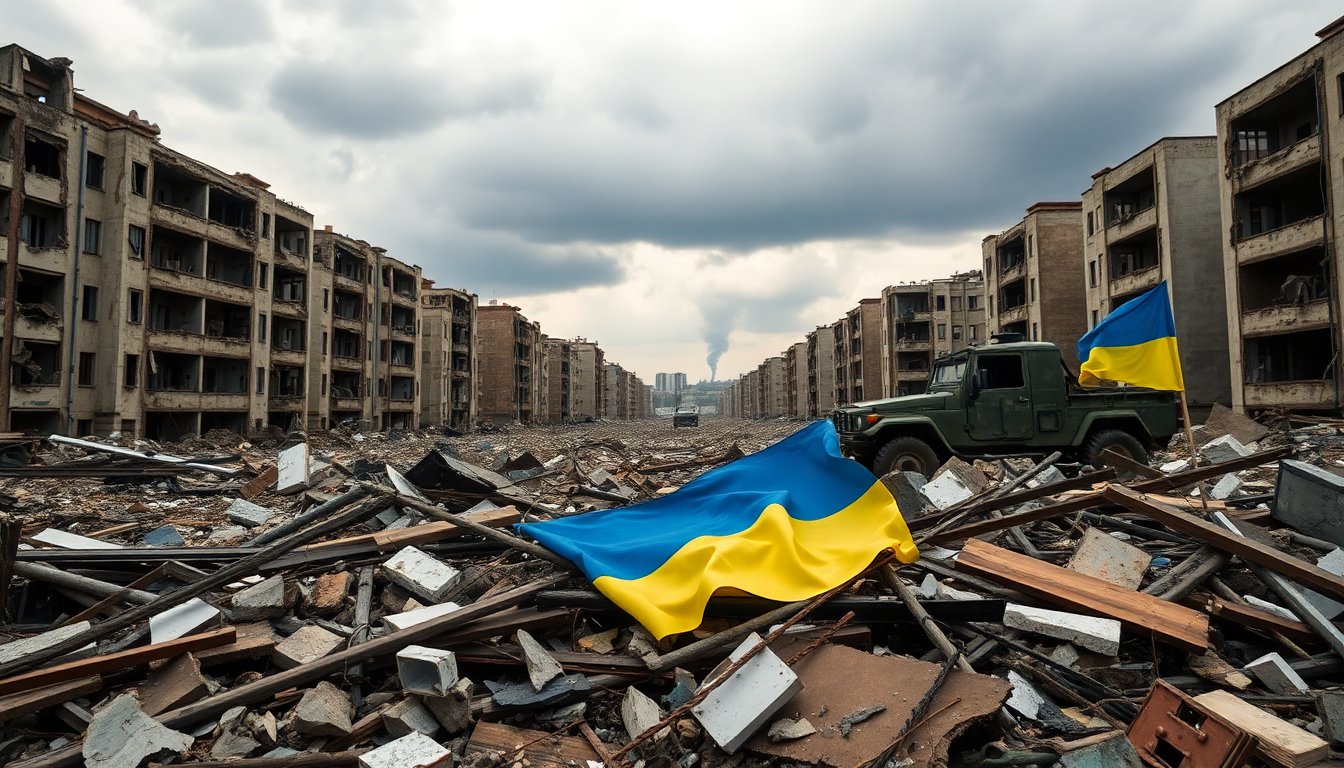Table of Contents
The ongoing conflict in Ukraine has escalated, particularly following alarming attacks by Russian forces targeting civilians. Ukrainian President Volodymyr Zelenskyy is preparing for critical discussions with U.S. President Donald Trump later this week, amid a challenging landscape. The timing of these assaults may significantly influence Zelenskyy’s appeal for enhanced military support, notably for long-range Tomahawk missiles.
In a series of devastating strikes, officials reported that Russian forces launched drone and glide bomb attacks on a hospital in Kharkiv, resulting in injuries to 57 individuals and necessitating the evacuation of approximately 50 patients. This incident highlights the urgent humanitarian crisis unfolding in the region.
Escalating violence and military strategy
On the same day, a United Nations convoy delivering essential aid to the frontline town of Bilozerka in the southern Kherson region was also targeted. Fortunately, there were no reported casualties, but this assault underscores the precarious situation for aid workers operating in conflict zones.
Humanitarian implications
The UN convoy, clearly marked with the World Food Programme insignia, was ambushed by Russian drones and artillery. Although two trucks sustained damage, Matthias Schmale, the humanitarian coordinator for Ukraine, emphasized that attacks on aid workers are completely unacceptable. The principles of international humanitarian law protect these individuals, making their targeting a serious violation.
Ukrainian Foreign Minister Andrii Sybiha condemned the attacks, labeling them blatant violations of international law and a reflection of Russia’s disregard for civilian safety and its obligations under global agreements. The UN’s sexual and reproductive health agency, UNFPA, revealed that the convoy was carrying critical supplies for vulnerable populations, including 800 packages intended for women, girls, and the elderly.
Zelenskyy’s response and diplomatic efforts
In response to the increasing frequency of these attacks, President Zelenskyy characterized the assault on the Kharkiv hospital as an “utterly terrorist, cynical act against a facility meant for healing.” He noted that ongoing strikes have primarily targeted energy infrastructure, including power plants and natural gas facilities in Kherson and Sumy. This strategy has become evident over the past three years, as Russia has intensified its assaults on Ukraine’s energy grid with winter approaching, aiming to undermine the morale of the Ukrainian populace.
Given the dire circumstances, Zelenskyy has reached out to Ukraine’s allies, urging them to enhance the nation’s air defense systems. The attacks on energy infrastructure have led to widespread outages, heightening the urgency for increased military support.
Talks with the US
As the meeting with Trump approaches, discussions are anticipated to focus on the potential supply of Tomahawk missiles to Ukraine. These long-range weapons, if provided, would significantly enhance Ukraine’s capacity to conduct precision strikes deep within Russian territory, targeting vital installations in Moscow. This strategic move could alter the dynamics of the ongoing conflict.
Despite prior reluctance from Washington to supply Ukraine with such advanced weaponry, recent developments and Trump’s hints at considering the provision of Tomahawks suggest a shift in the U.S. stance. However, the Kremlin has issued warnings regarding the severe ramifications of supplying these missiles, emphasizing that it could lead to greater involvement from the United States in the ongoing conflict.
International reaction and future implications
The international community is closely monitoring the situation, particularly as Zelenskyy prepares for his discussions with Trump. The outcomes of these talks could have profound implications for Ukraine’s defense strategy and its ability to respond to ongoing Russian aggression. As Zelenskyy appeals for support, the world observes to see whether the U.S. will respond favorably to Ukraine’s urgent needs.
In a series of devastating strikes, officials reported that Russian forces launched drone and glide bomb attacks on a hospital in Kharkiv, resulting in injuries to 57 individuals and necessitating the evacuation of approximately 50 patients. This incident highlights the urgent humanitarian crisis unfolding in the region.0


